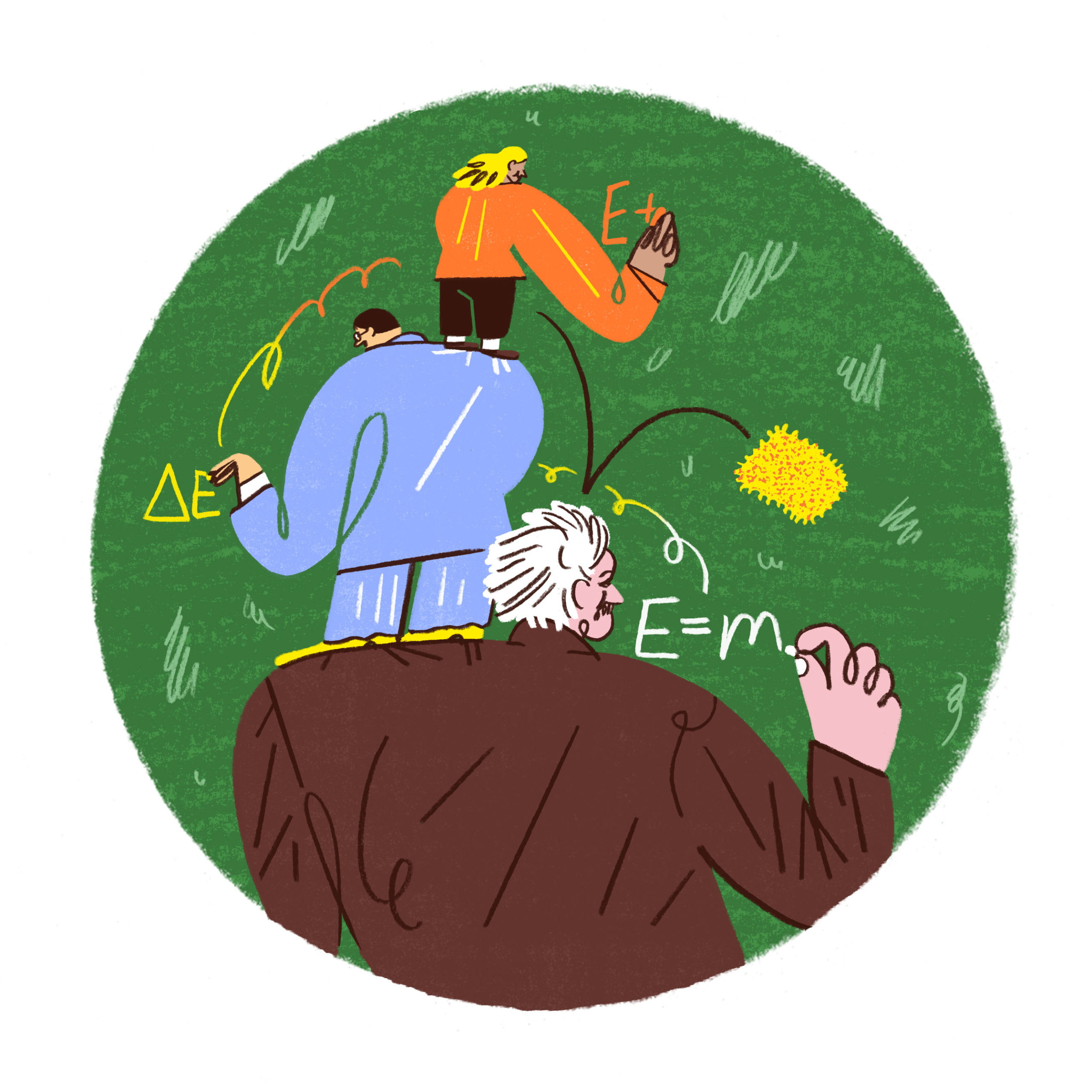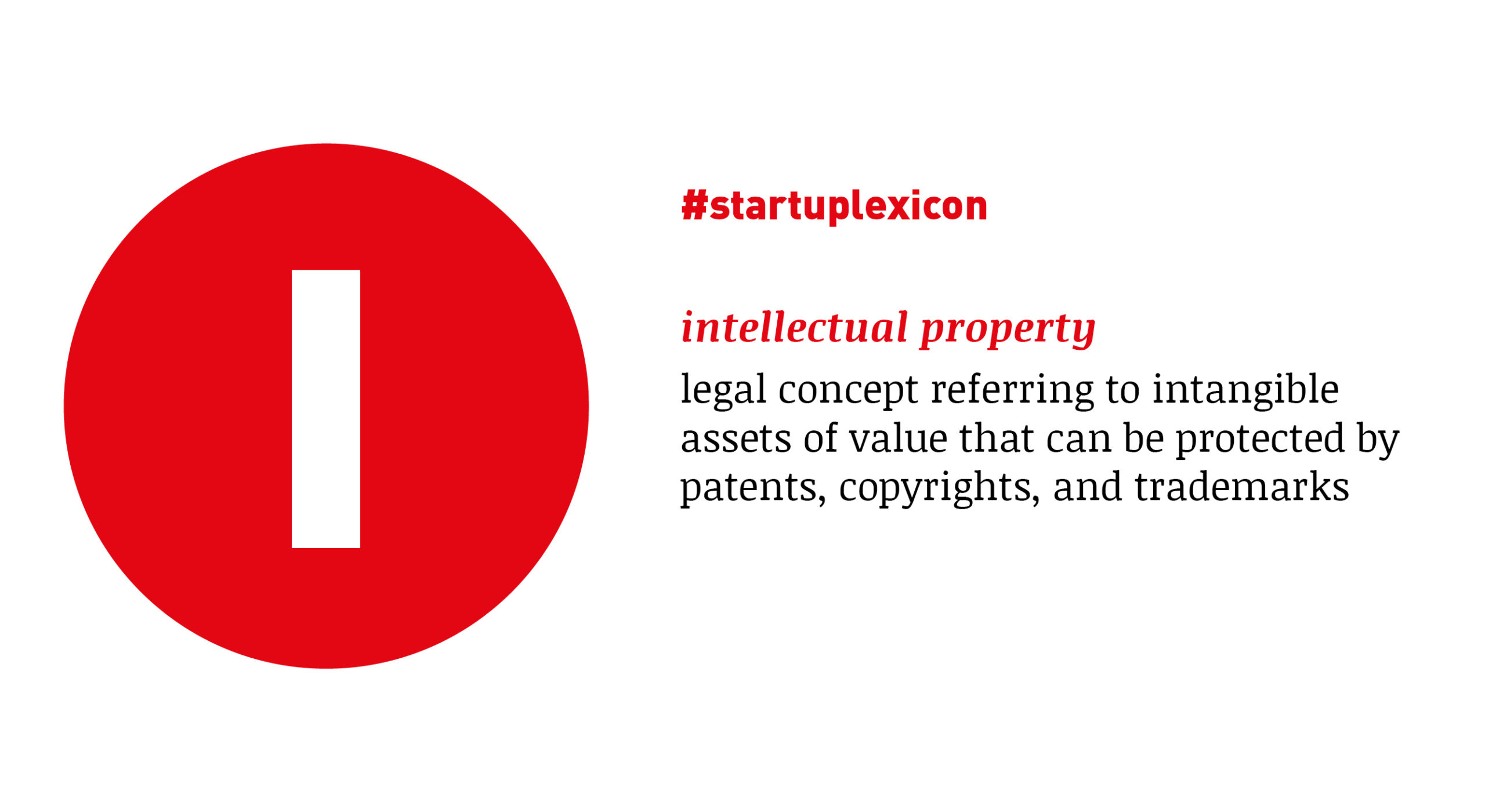
Standing on the shoulders of giants
Written by
How intellectual property can stimulate innovation
Viola Prifti wears many hats. As postdoctoral researcher she investigates how intellectual property can accelerate sustainability transitions and writes about plant variety protection. From her experience sitting on the advisory board of startup Pantohealth and teaching students of diverse disciplines, she knows the many questions and misconceptions young entrepreneurs have when it comes to intellectual property rights.
Why do we need intellectual property rights?
Intellectual property rights encompass different types of rights. Copyright, for example, protects the original expression of ideas in a fixed form while trademarks protect the mark that is used to distinguish a business. Patents protect innovation, and thus allow innovators to recoup their research and development costs and provide market advantage over competitors. If you do not care to patent your innovation, somebody might come along and copy your product, sell what you have been building for years at a lower price, and ultimately push you out of the market.
Which would be unfair, because they would have got a headstart on your innovation …
Exactly. However, intellectual property also holds a conflict: rewarding the innovator versus making the innovation available to society. If we patented everything, neither the competitors, nor society could access innovation without paying a licencing fee to the patent owner. Here, it becomes tricky: we need the patent as a necessary means to incentivise innovation on one hand, and make sure that innovation is accessible enough to breed more innovation on the other hand. For this reason, patents are time limited for a maximum of 20 years.
Do intellectual property rights (IPR) hinder or stimulate new ideas?
This is the thing: if we use patents in ways that are extremely exclusive, we do not allow cumulative innovation to happen. Monopolising innovation is not beneficial to society. It is only by sharing innovation through licensing that we allow others to build upon our ideas. The metaphor which comes to my mind is: we stand on the shoulders of giants. Innovation does not happen in a vacuum! Our technological progress, for example, would not have been possible without Nicola Tesla’s work on the electrical system and the magnetic field. In this regard, patents also have an informational role. This is very important for startups that need to attract venture capital and use patents as bargaining chips in negotiations.

At which stage would you advise entrepreneurs to become concerned with IPR?
Entrepreneurs should think about intellectual property from the very beginning. Most startup founders begin with the patent question, because it gives you the competitive advantage. The name that you use to distinguish yourself on the market is a trademark, which usually comes a bit later. Generally, I would suggest not to discuss too many details of your idea and make sure that if you do, it happens under a non-disclosure agreement. Choose what is necessary to commercialise the innovation and protect what gives you the competitive advantage.
What exactly does an idea need in order to be protected by a patent?
A common misconception is that patents protect ideas. My students are always surprised when I tell them that patents do not protect ideas, but rather the expression of ideas. In order to be patented, an idea needs to be expressed as a technical solution to a technical problem. Only technical solutions that involve an inventive step and have a commercial application can be object to patent protection.
What if you want to be an entrepreneur, but you do not have a business idea?
When I attended the Young Entrepreneurs in Science workshop, I realised that entrepreneurship is about working together and reaching a common goal more than it is about having the next big idea. You do not have to have your own idea to be an entrepreneur! You could be a valuable asset to someone else with your unique skillset and build a business together.
At the workshop you also connected with the Pantohealth founders …
Yes, with Mina and Farzad. After the workshop, Mina, me, and a few other women from the workshop decided to meet for a coffee. That’s how we first connected. Later, we met up at their coworking space to discuss some legal issues and bounce back and forth ideas. They were happy with my input, so they asked me to join their advisory board. I should say that Mina has introduced me to different startup hubs here in Berlin, which has been very helpful in order to get to know the startup scene in Berlin and the IP issues they face.
A lot of valuable connections happen in those informal settings, which have become rare and difficult to facilitate during the pandemic. How do you go about networking in online settings?
It is not easy, but not impossible. Technology is not a barrier to human relationships. I was supposed to go to Cambridge beginning of this year, but I had to cancel my trip because of the COVID-19 outbreak. Instead, I inquired to join their Newcomers and Visiting Scholars online meetings. I have been connecting with almost everyone in the group on a personal level, not having met them once in real life. When you develop a relationship with other people it is easier to work together. Business goals are important, but you need to establish a human connection, build on similar values and ethics. In online settings, being open has a lot of benefits. It helps to become aware of the fact that you do not know how other people might feel. Maybe the reason they are not communicating is not because they do not like you, but rather that they do not know how to. Recognising and being open about your own feelings can be a connector, because the quarantine situation has been a lonely experience for a lot of people. Others might just feel the same •






